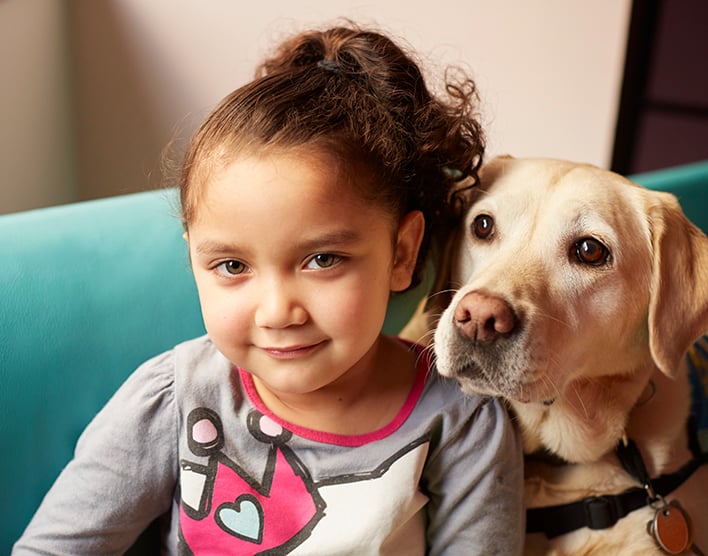Tender wagging care
Our therapy dogs spread joy and smiles at the bedside and throughout the hospital.
Visit Child Life services

Prune belly syndrome consists of three abnormalities:
The majority of children with prune belly syndrome are male (>95%).
The symptoms of prune belly syndrome vary in severity and can be categorized on a scale from I-III.
Category I patients are the most severe and have poor lung and kidney development. These children usually do not survive more than a few days after birth.
Category II patients do not have lung problems but have significant problems with the urinary tract. They may develop kidney failure overtime.
Category III patients do not have lung problems and their kidney function is not severely impaired.
Prune belly syndrome may be suspected due to the appearance of a dilated urinary tract on prenatal ultrasound. Once the child is born the combination of physical exam (wrinkled appearance of the belly wall and the presence of undescended testicles) and radiographic studies to identify the dilated urinary tract (ultrasound and voiding cystourethrogram) make the diagnosis.
The goal for management of prune belly syndrome is to preserve kidney function and prevent urinary tract infection. Sometimes surgical intervention for reconstruction of the urinary tract and the abdominal wall is required. Children may be placed on prophylactic antibiotics to help prevent urinary tract infection. Male children with prune belly syndrome will also require surgery to place the testicles down in the scrotum. All patients require lifelong surveillance because they are at risk for urinary tract infection and decline in kidney function overtime. Instrumentation of the urinary tract (including catheterization) should be performed with caution and avoided when possible since this places the child at risk for urinary tract infection.
UCSF Benioff Children's Hospitals medical specialists have reviewed this information. It is for educational purposes only and is not intended to replace the advice of your child's doctor or other health care provider. We encourage you to discuss any questions or concerns you may have with your child's provider.

Best in Northern California for urology

Ranked among the nation's best in 11 specialties
Tender wagging care
